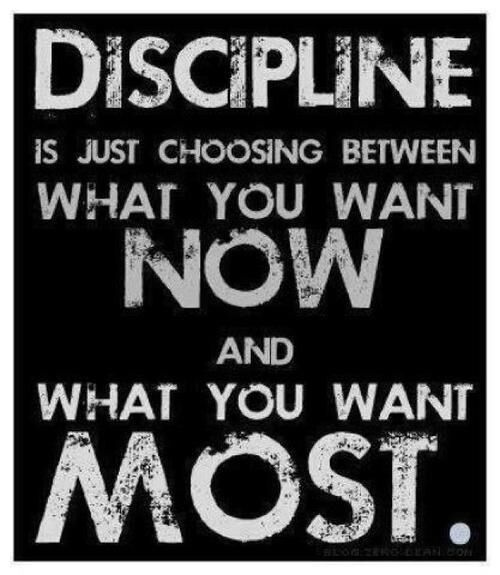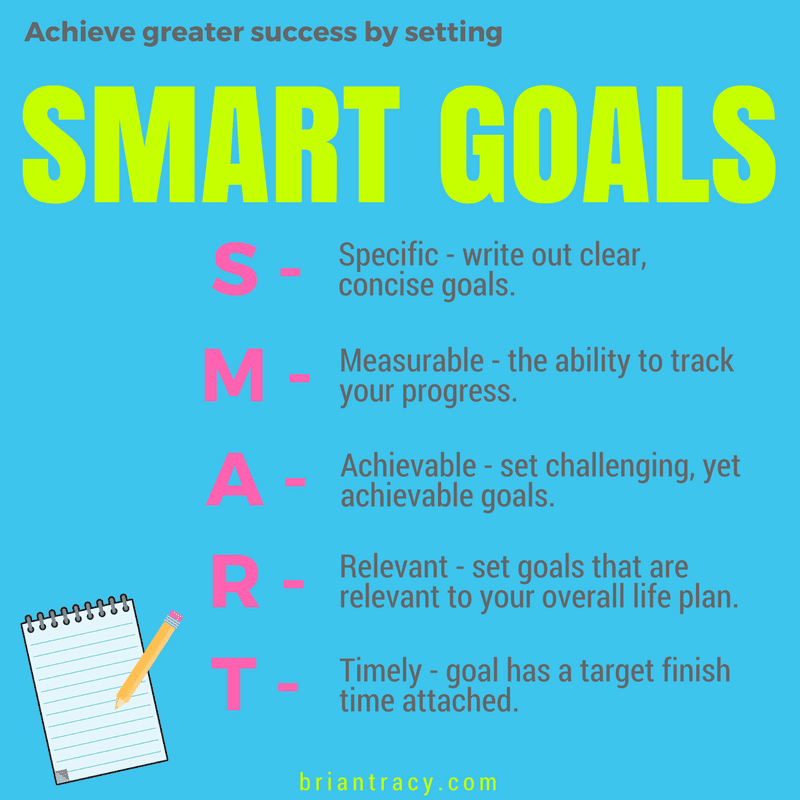Self-Discipline Habits To Improve Your Life
Self-Discipline Habits To Improve Your Life
When you master yourself, you can succeed at anything.
The key to mastering your thoughts and actions is developing self-discipline.
Did you know the most successful people have gotten to where they are today because they have learned to practice self-discipline?
If you, too, would like to regain control of your thoughts and actions, improvement begins by understanding the definition of self-discipline, knowing the skills you need to develop it, and following examples that will inspire you to greatness.
What Is Self-Discipline?
Let’s start with the basics.
The word self-discipline is actually made up of two parts. The noun “discipline” means “training that corrects, molds, or perfects the mental faculties or moral character” (Merriam-Webster Dictionary).
The ‘self’ in self-discipline means you have the willpower to do these things on your own, without someone telling you to do them.
So self-discipline means you control your feelings and even do hard things so you can be better and have more prosperity.
More than one self-discipline definition can help us understand the concept better, though. Consider these dictionary definitions:
- Self-discipline is “the ability to control one’s feelings and overcome one’s weaknesses; the ability to pursue what one thinks is right despite temptations to abandon it. ”Oxford Languages Dictionary
- “Self-discipline is the ability to control yourself and to make yourself work hard or behave in a particular way without needing anyone else to tell you what to do.” Collins Dictionary
- Self-discipline is the “correction or regulation of oneself for the sake of improvement.” Merriam-Webster Dictionary.
 You can also use different words in place of self-discipline to better understand its meaning. Some synonyms are:
You can also use different words in place of self-discipline to better understand its meaning. Some synonyms are:
- Self control
- Self-regulation
- Self-mastery
- Will power
- Firmness of purpose
- Self-restraint
My favorite definition of self-discipline, perhaps, is this: “Self-discipline is the ability to make yourself do what you should do when you should do it, whether you feel like it or not.”
To be completely truthful, it is easy to do something when you feel like it. However, it’s when you don’t feel like doing something and you force yourself to do it anyway that you move your life and career onto the fast track.
Controlling our feelings in the moment so we can have something better later takes hard work. It involves delayed gratification, which is not acting on your impulses.
It is doing what you have to do now so you can do what you want to do later.
As psychologist Arden Mahlberg explains in one of his self-discipline quotes: “Discipline really means our ability to get ourselves to do things when we don’t want.”
Disciplining one’s conduct leads to success in anything you want to accomplish. Apply the principles of self-discipline to both your personal and professional life.
The Importance of Self-Discipline
Having the ability to discipline yourself has many benefits.
Self-discipline puts you on the fast track to accomplishing your goals because you are more focused on what is important and less distracted by things that get in the way.
It helps reduce stress and anxiety, which often come from procrastination, wasting time, or not having a plan to follow.
Self-control makes you feel more confident in your abilities to accomplish things, which leads to living a better lifestyle and becoming your best self.
Self-discipline accelerates personal improvement in all areas of our lives, including physical and mental health, education, career, financial independence, and relationships.
Research shows that students who have more self-discipline, regardless of IQ, gain more knowledge, make fewer careless mistakes, and perform better than those who do not.
In the workplace, research shows that self-discipline has positive outcomes, including higher income, the feeling of achievement in one’s career, and a higher rate of accomplishing one’s goals.
How do you know if you lack self-discipline? There are some signs to look for. One sign is that you find yourself making excuses for falling short on things.
For example, promptness requires self-discipline. If you are often late to appointments, work, or other commitments but blame it on traffic, hitting the alarm too many times, or staying up late to finish a project, you likely lack self-discipline. Instead, you should take responsibility for leaving earlier, getting up on time, or not procrastinating the start of your project.
Another sign you need more self-discipline is that you give in to temptation and just can’t seem to reach your goals. That could be eating too much so you cannot reach your ideal weight or not advancing in your career because you give in to the temptation of spending some of your free time on social media instead of taking an online course.
One more sign that you need to improve your self-discipline is that you wait to feel motivated before doing something. For example, if you want to write a book and are waiting until the right moment when you feel energized to do it, you will probably never accomplish it.
The power of self-discipline gets you out of your comfort zone and lets you soar to new and unimaginable heights.
7 Steps to Develop Self-Discipline
When you have the determination to improve self-discipline, you open up many doors to new opportunities.
But it takes more than willpower to improve your ability to discipline yourself. You need to develop skills through learning and training yourself to practice self-control until being self-disciplined becomes a habit.
Follow these seven steps to success:.
Step One: Decide What You Want
You have a lot of ideas floating around in your head. The first step to improving your self-discipline is to organize your thoughts and figure out what you want.
As Napoleon Hill puts it in one of his self-discipline quotes:
“Self-discipline begins with the mastery of your thoughts. If you don’t control what you think, you can’t control what you do. Simply, self-discipline enables you to think first and act afterward.”
Decide exactly what it is you want in each part of your life.
Do you need to increase your knowledge of the trends in your industry so you can advance to a higher position?
Do you want to adopt healthy habits like exercising and healthy eating so you feel better, increase your self-confidence, and open yourself up to more opportunities?
Is learning a new language or skill something you want to do to open new doors professionally or personally?
Tap into your self-awareness and think about what you want to do and be. Become a “meaningful specific” rather than a “wandering generality.”
What decisions do you need to make today in order to start moving toward the top of your field?
Whatever it is, make a decision now and then get started. This single act alone can change the whole direction of your life.
Understand that any new endeavor you take on will take effort and a willingness to delay gratification. But enduring temporary discomfort is always worth the reward of long-term gain.
Step Two: Identify and Remove Temptations
Distractions are the enemy of accomplishment and discipline. Your ability to resist temptation will turn bad habits into good ones.
One of the wisest things you can do to resist temptations is to simply remove them as much as possible.
If checking your social media feed has become a time-waster, reduce your screen time by setting limits on your smartphone, turning off notifications, scheduling specific times when you can check your accounts, or deleting the apps that do not contribute to your goals or overall well-being.
If you are easily distracted by how readily accessible entertainment is, remove things like television, video platforms, or subscription streaming services from your environment.
Do the same with tempting foods, people that are a negative influence, or anything else that is impeding your progress.
Your environment sets you up for success. Being honest with yourself about what those distractions are is key to your success.
Fewer distractions have a tremendous impact on accomplishing your goals.
Self-denial may seem difficult at first, but when one’s desires are tempered, it allows for blossoming into a newer and better version of oneself.
Conduct a time audit to identify your temptations and time wasters. Over the next several days, keep track of what you do all day. Writing it down will allow you to analyze how you spend your time and change it into how you want to spend your time.
Removing temptations is liberating.
As Harvey Dorfman, a mental skills coach, puts it, “Self-discipline is a form of freedom. Freedom from laziness and lethargy, freedom from the expectations and demands of others, freedom from weakness and fear — and doubt.”
Step Three: Find an Accountability Partner
Sometimes it’s hard to stay disciplined when you’re working in silence.
Having someone share your goals and keep you accountable can help keep you on track and motivated to stay disciplined.
An accountability partner can help you overcome the challenge of making the changes you need to restrain your impulses and make better decisions.
Setting a specific goal makes you 10% more likely to achieve it. But committing to someone else that you will do it increases your success rate by 65%, and making an appointment to report back to that person raises it even higher to 95%.
An accountability partner is someone with whom you make an agreement to help each other stay on track toward achieving your goals.
In your effort to improve self-discipline, knowing that you need to report your actions to someone else will help you stay motivated, and you will do the same for them.
An ideal accountability partner is someone who is working toward similar goals as you. For example, if your goal is to start your own business, choose an accountability partner who shares the same entrepreneurial goal. In this way, you can learn together, brainstorm solutions, and share helpful insights on the training each other is receiving.
You should also choose someone who wants to be held accountable — a person as interested in building self-discipline as you are.
The right accountability partner is trustworthy and will keep your discussions confidential. They are kind and encouraging yet will also ask you difficult questions and give constructive criticism to help you stay on track.
Share your goals with your accountability partner, be honest about your progress, and stay connected regularly. Set daily, weekly, and monthly check-in appointments, and keep these sessions short and on-topic.
Communicate in a way both of you are comfortable with, such as email, text, phone calls, in-person meetings, or a combination of several modes of communication.
The positive reinforcement and encouragement you receive from your accountability partner — and in turn, give to them — can make all the difference in overcoming the roadblocks you have been experiencing and catapulting you toward making your hopes and dreams a reality.
Step Four: Write Your Goals Down
Always think on paper — or an electronic device. A goal that is not in writing is not a goal at all. It is merely a wish and it has no energy behind it.
Write your goals down clearly and in detail. The most successful goals are SMART goals: specific, measurable, achievable, relevant, and time-bound.
Define your long-term goals, but then set small goals and work your way to bigger ones. Baby steps are easier to visualize and achieve. They help you overcome your challenges more effectively than focusing on broad goals that take time to reach.
Reaching your smaller goals will motivate you to continue on the road to progress.
If your goal is to eat healthier, for example, start by adding one new healthy food to your diet each week. You don’t have to eliminate all unhealthy foods at once. Going slowly will help you stay motivated.
It takes a tremendous amount of willpower to make a total, sweeping change all at once. But making gains step by step will require training your mind to exercise self-control in manageable increments until it becomes a habit and you no longer have the desire to return to old ways.
Use these examples of SMART goals as inspiration to write down your own:
- I will increase business sales from repeat customers by 5% by the end of the quarter by gathering contact information at the point of sale and following up with strategies that make them feel valued.
- I will decrease the number of times I complain to once every other day by May 31st in an effort to improve my mental health by taking 10 seconds to think about my words before sharing them.
- I will continue to lose weight by adding exercise to my morning routine by walking for 30 minutes before eating breakfast for the next three weeks.
- I will learn to play the major chords on the guitar by my birthday by watching tutorial videos and practicing for 15 minutes per day.
- I will improve my academic performance on class assessments by 10 percentage points by the mid-term exam by recording lectures, listening to them on my commute, and outlining notes from each lecture within two days of hearing them.
Step Five: Make To-Do Lists
Keep yourself on track daily by making a to-do list of everything you can think of that you are going to have to do to accomplish your goal. This is one of the most important things you can do to help you be productive and feel happier.
Lists serve as visual reminders that you are on a path toward excellence. Checking off each task as you complete it provides instant motivation to keep moving forward.
When you think of new tasks and activities, write them on your list until your list is complete.
Revisit your goals regularly to make sure you are on track. If you need to change a word or sentence in your goal to make it more precise, relevant, or achievable, do so without compromising your progress. The key is to create and follow goals that will get you closer to the existence you want, never farther away.
At the end of each day, make your list for the next day. Small habits like this will keep your mind focused on taking the right actions toward exercising self-control.
Be sure to set deadlines for all of your goals and sub-goals. This will help you work hard and achieve results in a timely manner.
Step Six: Organize Your Lists
Organize your lists into a plan.
Decide what you will have to do first and what you will have to do second. Decide what is more important and what is less important. And then write out your plan on paper, the same way you would develop a blueprint to build your dream house.
Group the tasks on your list into related items. This will help you save time and effort if you complete similar items in the same time period. Your mind will be in tune and your workspace will be organized with what you need.
Avoid multitasking. While it may seem like you are busy doing more, multitasking actually serves as a distraction as you cannot devote the right amount of mental energy to a single task. Tackle one item at a time, then move on to the next one.
The challenge of disciplining yourself will become easier as you develop purposeful routines like these.
Step Seven: Create an Action Plan
Do something every single day that moves you in the direction of your most important goal at the moment.
Develop the time management discipline of doing something 365 days each year that is moving you forward. You will be absolutely astonished at how much you accomplish when you utilize this formula every single day.
Internalize Dr. Martin Luther King, Jr.’s inspiring words on taking action: “If you can’t fly, run. If you can’t run, walk. If you can’t walk, crawl, but by all means, keep moving.”
Action is imperative for progress.
Research shows that those who use an implementation intention plan are more successful in creating new habits and becoming more self-disciplined.
An implementation intention is an if-then strategy used in disciplining oneself to make the right decisions in the moment. You plan ahead for what you will do when faced with a temptation or distraction.
To use this strategy, complete this sentence with words that apply to what you are trying to overcome:
“When X situation arises, I will respond with Y.”
Using this plan forces you to be more self-disciplined and cultivate mental toughness.
To help you stay on top of your action plan, consider remembering or writing down one of my favorite quotes that relates to self-discipline:
“Mental toughness is many things and rather difficult to explain. Its qualities are sacrifice and self-denial. Also, most importantly, it is combined with a perfectly disciplined will that refuses to give in.” (Vince Lombardi)
Set Yourself Up For Success
Begin your path toward personal improvement by becoming more self-disciplined today.
The power of self-control will propel you toward a better life.
Setting goals is an important part of becoming more disciplined. If you don’t know where to start, my 14-Step Goal Setting Guide includes more tips on how to set clear goals. The actionable advice in this resource will teach you how to achieve your goals faster than you ever thought possible.

































![[ℕ𝕖𝕧𝕖𝕣] 𝕊𝕖𝕝𝕝 𝕐𝕠𝕦𝕣 𝔹𝕚𝕥𝕔𝕠𝕚𝕟 - And Now What.... Pray To The God Of Hopium?](https://cdn.bulbapp.io/frontend/images/79e7827b-c644-4853-b048-a9601a8a8da7/1)




















